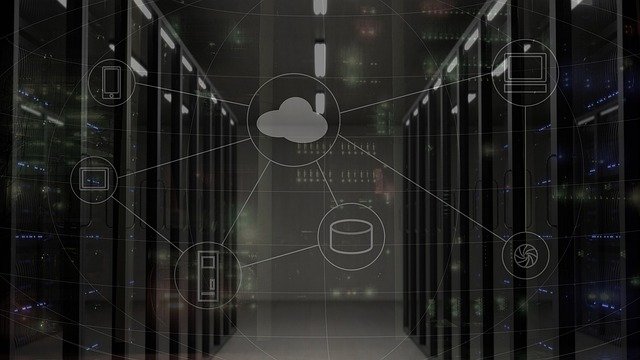
The evolution of IT infrastructure has brought about significant changes in how businesses manage and deploy their computing resources. Traditional hardware servers, once the backbone of IT operations, are now complemented—and sometimes even replaced—by software-based and cloud-based solutions. This shift has led many to ask: Are hardware servers becoming obsolete?
Rather than viewing it as software server vs hardware server, it is more useful to explore how they can coexist in modern IT environments and how businesses can leverage both to optimize performance, scalability, and cost-efficiency.
Hardware servers have long been the foundation of enterprise computing, providing dedicated resources for databases, applications, and critical workloads. Despite the rise of cloud computing and virtualization, physical servers continue to offer several advantages that make them indispensable in certain environments.
Hardware servers provide dedicated resources, which means businesses can achieve consistent performance without the variability that sometimes comes with shared or virtualized environments. Industries such as finance, healthcare, and high-performance computing often rely on hardware servers for mission-critical applications that require low latency and high processing power.
For organizations handling sensitive data, maintaining on-premises hardware servers can be a strategic choice. Industries subject to strict compliance regulations—such as banking, government, and healthcare—often prefer physical control over their servers to ensure data security and compliance with local regulations.
While the initial investment in hardware servers can be significant, businesses that require predictable workloads may find that owning their infrastructure is more cost-effective over time compared to recurring cloud costs. Large enterprises with stable IT needs often benefit from owning dedicated hardware rather than continuously paying for cloud services.
Hardware servers offer greater flexibility in terms of hardware configurations, networking setups, and storage architectures. Businesses that require highly customized solutions—such as gaming companies, scientific research institutions, or video rendering firms—often prefer hardware servers to fine-tune their infrastructure to their specific needs.
The increasing demand for scalability, cost efficiency, and remote accessibility has fueled the growth of software servers, which can be deployed on physical hardware, in virtualized environments, or in the cloud.
One of the biggest advantages of software-based servers is scalability. Organizations can easily adjust computing resources based on demand, whether it’s increasing capacity during peak seasons or reducing usage when workloads are lower. This is especially valuable for businesses experiencing rapid growth or fluctuating workloads.
Virtualized environments allow organizations to run multiple software servers on a single physical machine, optimizing resource utilization. Cloud providers offer Infrastructure-as-a-Service (IaaS) solutions that enable businesses to deploy and manage virtual servers without needing to maintain physical hardware. This approach reduces the burden of hardware maintenance, upgrades, and physical space requirements.
Software servers and cloud-based solutions provide built-in redundancy and automated backups, which are crucial for disaster recovery. Unlike traditional hardware, where failures may require physical replacements, virtual servers can be easily restored, migrated, or replicated across different locations. This ensures business continuity with minimal downtime.
For many businesses, moving to software-based or cloud solutions reduces capital expenditures (CAPEX) related to purchasing and maintaining hardware. Instead, businesses operate on a pay-as-you-go (OPEX) model, paying only for the resources they use. This makes software-based servers attractive to startups, small businesses, and enterprises with dynamic IT needs.
The short answer is no—hardware servers are not becoming obsolete, but their role is evolving. Rather than being replaced, they are increasingly complemented by virtualized and cloud-based solutions. Many organizations now operate in a hybrid IT environment, combining on-premises hardware with cloud-based or software-defined infrastructure to optimize cost, performance, and security.
Many enterprises are embracing hybrid cloud solutions, where on-premises hardware servers are used for critical applications, while cloud-based and virtual servers handle scalable, non-essential workloads. This hybrid model allows organizations to balance cost, security, and performance, ensuring they get the best of both worlds.
For example:
When deciding between hardware servers and software servers, organizations should consider several key factors:
1. Workload and Performance Needs
2. Security and Compliance
3. Budget and Cost Structure
4. IT Management and Maintenance
The future of IT infrastructure is not about choosing hardware servers over software servers or vice versa—it’s about finding the right balance between the two. While hardware servers continue to offer security, performance, and long-term cost advantages, software servers provide scalability, flexibility, and cost efficiency.
For most businesses, a hybrid approach that combines on-premises hardware with cloud-based and virtualized solutions is the most practical path forward. The key is to align server infrastructure with business needs, ensuring that performance, security, and cost considerations are optimized for the best possible outcome.
As technology continues to evolve, the role of hardware servers and software servers will continue to shift, but both will remain crucial elements of modern IT strategies. Businesses that adapt to this dynamic landscape will be best positioned to thrive in the future of digital infrastructure.
Subscribe to our newsletter and get top Tech, Gaming & Streaming latest news, updates and amazing offers delivered directly in your inbox.